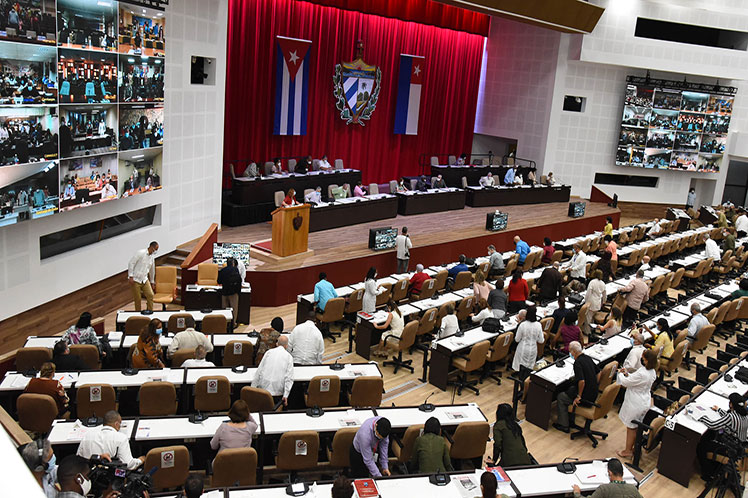This is the case with the bills on the People’s Courts, Administrative Proceedings, the Code of Proceedings and Criminal Procedure, which are being discussed Monday by deputies to the National Assembly of People’s Power (ANPP).
This is a working day prior to the first session of the year of the Cuban Parliament, which takes place in a semi-presential way, and in which President Miguel Díaz-Canel participates.
On the occasion, the president of the People’s Supreme Court (TSP), Ruben Remigio, told the ANPP plenary that various actors issued almost four thousand criteria in the process of discussion of such legislative projects.
Remigio stated that three thousand proposals were received, of which 63 percent were accepted and one third were considered unacceptable.
The President of the TSP explained that the Law of the Courts of Justice will replace Law Number 82 of 1987. The change of name is due to the fact that the Constitution approved in 2019 includes it in its articles.
He pointed out that 25 proposals from an equal number of legislators are included.
From the specialized consultations, 65 proposals were accepted from basic officials of the courts, and another 10 suggestions come from the population.
The bill reaches the National Assembly of People’s Power with 42 modified articles, seven of them with substantial changes.
Remigio assured that the principle of collegiate action of the courts is reinforced, with panels of three or five judges.
He explained that the Cuban justice system is characterized by the popular participation of lay judges, with around 13,500 elected judges.
However, he said that half of this figure does not serve for various reasons, which indicates the need to hold elections to replace them in some 60 municipalities of the country.
For his part, the secretary of the ANPP, Homero Acosta, emphasized the vertical structure of the Cuban justice system, which does not subordinate itself to any local authority and only does so before the highest state power, the Parliament.
pgh/etc/mem/ool









